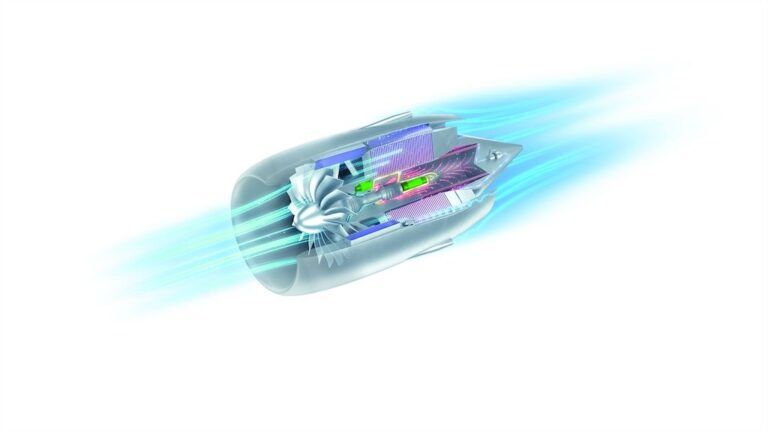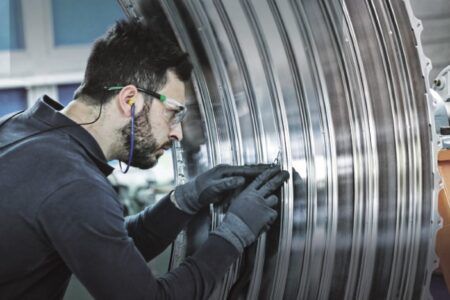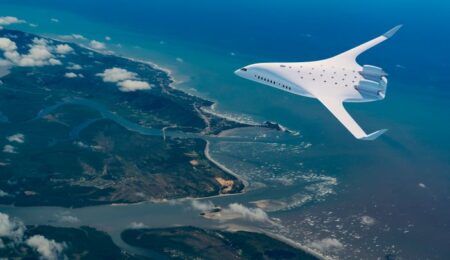Several aerospace companies from around the world are to partner on the development of water-enhanced tubrbofan engines and hybrid electric propulsion for aircraft.
Companies in the SWITCH (Sustainable Water-Injecting Turbofan Comprising Hybrid-Electrics) program include MTU Aero Engines, Pratt & Whitney, Collins Aerospace, GKN Aerospace and Airbus. The research program is also being supported by the EU’s Clean Aviation Joint Undertaking and led by MTU.
Water-Enhanced Turbofan (WET) concept recovers water vapor from the engine exhaust and re-injects it into the combustion chamber to significantly improve fuel efficiency, reduce NOx emissions, and lessen contrail forming emissions. When combined with a hybrid-electric powertrain and Pratt & Whitney’s GTF (geared turbofan) engine technology, engineers believe fuel efficiency can be improved and aircraft CO2 emissions reduced by up to 25% compared to today’s propulsion systems for short- and medium-range aircraft.
The technologies developed as part of SWITCH will be compatible with cleaner alternative fuels such as Sustainable Aviation Fuel (SAF) and will be evaluated for future use with hydrogen.
Phase 1 of the SWITCH program will run until 2025, during which time the companies involved aim to successfully test a hybrid-electric GTF engine, as well as WET technology and to have conducted sub-system laboratory testing and design activity around an integrated hybrid-electric and WET cycle propulsion system.
Subsequent phases of SWTCH will run more ground testing before flight tests if Phase 1 is successful and funding is available.
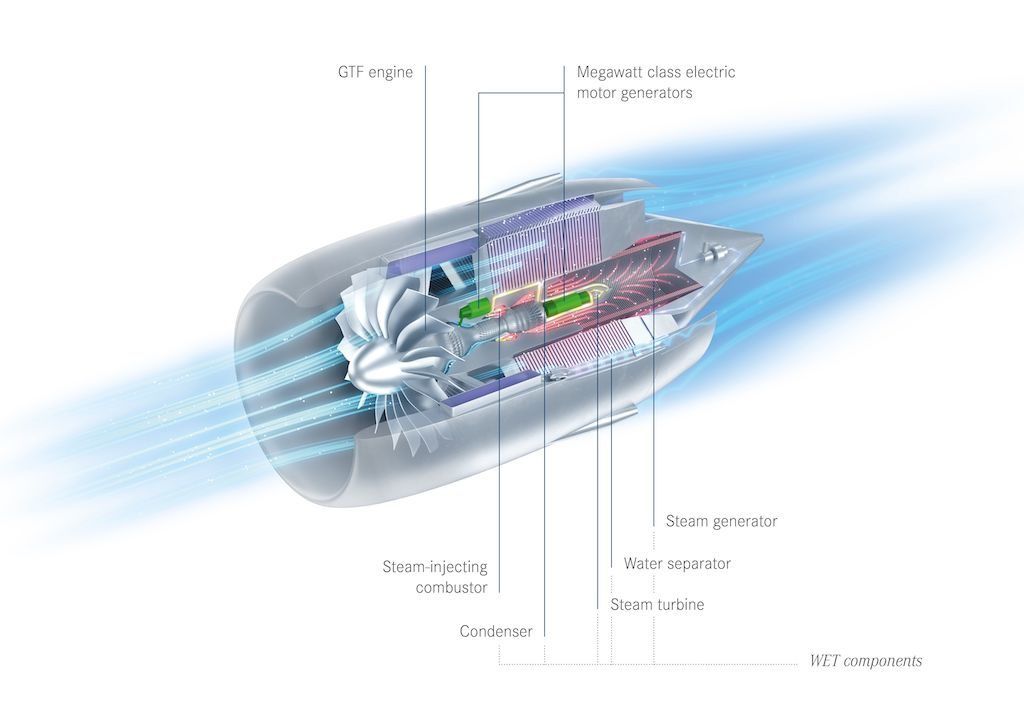
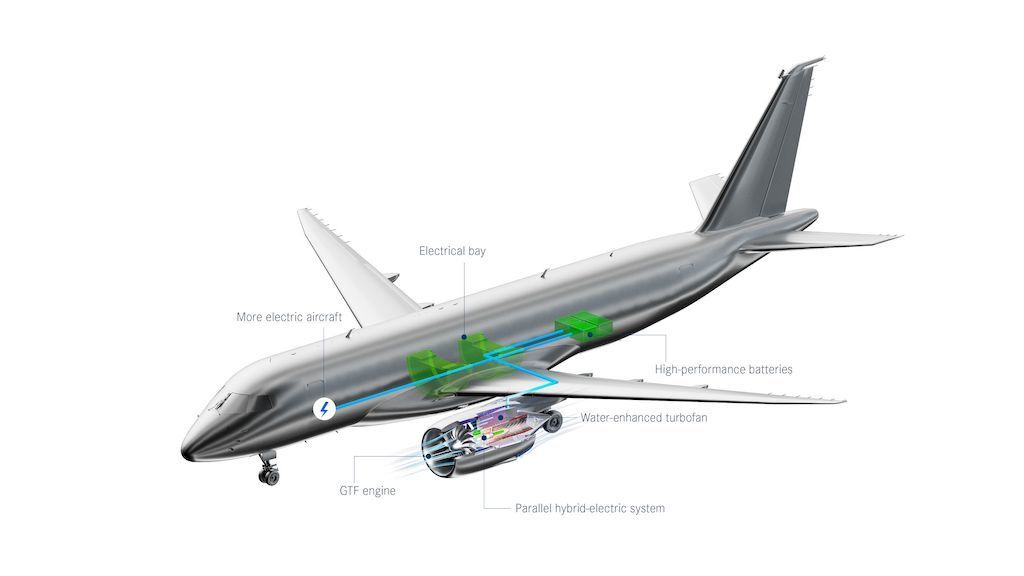
Stefan Weber, senior vice president of engineering and technology at MTU said, “The SWITCH consortium provides an opportunity to demonstrate the benefits of both WET and hybrid-electric propulsion technologies, not only independently but as parts of a system.
“WET offers considerable potential to boost efficiency and reduce all emissions significantly for future aircraft propulsion systems, whether they are powered by conventional kerosene, SAF, or even hydrogen. Since the concept is gas turbine based, the WET concept fully leverages MTU’s expertise.”
Geoff Hunt, senior vice president of engineering and technology at Pratt & Whitney said, “This project will enable us to advance several key technologies on our roadmap to further extend the efficiency of the GTF engine architecture.”
Airbus will provide key expertise relating to the future integration of SWITCH technologies at the aircraft-level and will support the evaluation of performance benefits including aircraft design and integration of battery and energy management systems.
Collins will provide megawatt-class electric motor generators and power electronics, high-voltage DC distribution and protection, thermal management components and nacelle architectures for the project.
GKN Aerospace will develop various engine structures with all-new functionalities, such as integrated electric machines and heat exchangers.
Clean Aviation is a public-private partnership co-funded by the EU between the European Commission, the aerospace industry, and research institutes, dedicated to advancing transformational aircraft technologies which will help enable net zero emissions for aviation by 2050.
The program will be supported by UK Government though it UK Research and Innovation (UKRI) agency and will leverage collaboration between multiple aerospace companies, universities and research organizations across 11 countries in Europe and the United States.


